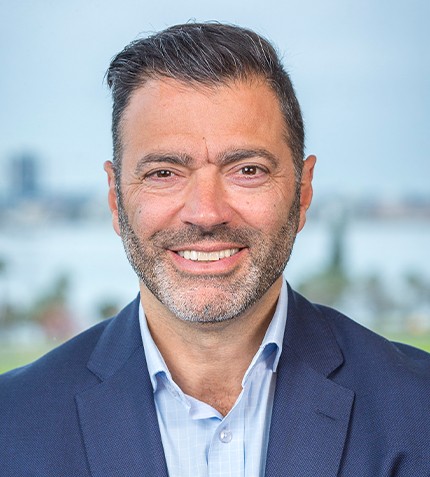
"Currently, South Africa is known and respected for manufacturing specialised machines and creating one-off solutions; the problem is that our production lines seldom support large enough volumes to create the economies of scale necessary to compete in the international arena."
RELATED PUBLICATION
ARTICLES FROM THIS PUBLICATION
Eric Bruggeman
CEO, SA CAPITAL EQUIPMENT EXPORT COUNCIL (SACEEC)
Can you give a brief overview of SACEEC?
SACEEC is an indispensable part of the globalisation of the South African capital equipment industry. We represent the capital equipment and project sector both for new projects and for the aftermarket. Our capabilities include looking after manufacturers of machinery and equipment and related services within the mining, transport, general engineering and agricultural sectors in addition to processing equipment, as well as their auxiliaries.
The export council consists of approximately 140 members who we are mandated to assist with local and global market access and export promotion. We represent member companies ranging from large multinationals manufacturing in SA to emerging exporters. Membership is restricted to South African registered and tax-compliant entities that are actively involved in local manufacturing, or are a division, branch or local subsidiary of an international organization whose products or services are produced or assembled in South Africa, or whose activities are in some way related to the export council and its activities and which may be described as making up part of the export council’s business and social environment.. Members are required to be BBBEE compliant (or have a traceable compliancy plan) and are exporter registered or in the process of registering. We currently have four members in our emerging exporter development programme, all in varied stages on their export journey.
South African capital equipment exports for 2017 were R178 billion, of which SACEEC members exports accounted for approximately R60 billion. Only R6 billion of these exports are into the African market, thus, while Africa is a strategically important market, it is not a particularly big market. This is mainly due to Chinese influence in Africa. The ease of doing business in a country is important to our members and we place big emphasis on business risk and personal safety. For this reason, we maintain close relations with South African embassies and foreign offices around the world. The SACEEC offers members a combination of an advisory function and a broad network of contacts for our members to draw upon.
How many of SACEEC’s members are mining oriented and how does the South African mining charter effect export companies?
While as many as 80% of members are involved in the mining sector, only approximately 30% are solely mining oriented, however this figure is ever decreasing. The revised South African Mining Charter stipulates that 70% of a mines supplies must be locally sourced and these products need to have a minimum of 60% local content. For many of the current international suppliers this is, and always will be, unachievable; however it is not just the internationals that may not be able to achieve this target, which dramatically affects the strength of local equipment manufacturers’ home market. In addition, the cost of compliance to the new BBBEE regulations creates further pressure on the sector. It is not that companies are unwilling to comply; often the absence of institutional and financial support on hand to comply with the regulation is to blame. While local communities, local manufacturers, local municipalities and the government should all benefit from South African mining operations, there needs to be a balance between these policies and operational feasibility. The reason why governments implement stringent mining regulations and tax policies is to bolster revenue, however, they must not neglect the importance of investment without which it is not possible to generate any money at all. Simply put, no one benefits from mining operations shutting down.
Contracted investment in the South African mining industry, largely owing to a lack of investor confidence in the current government structure, has significantly impacted the national economy. Investors see no guarantee for a return on their investments in South Africa, while political and regulatory uncertainties continue to undermine the country’s investment attractiveness.
If you had full authority to change things in South Africa with the purpose of reviving the industry, what are the key changes that you would make?
I would curb imports on products readily available locally in order to promote local offtake. While promoting localisation would come with significant development and infrastructure costs, we simply cannot continue to import goods which we are fully capable of manufacturing locally. We need to form international partnerships to bring new technologies and efficiencies into the country, which would in turn improve our manufacturing capabilities. Currently, South Africa is known and respected for manufacturing specialised machines and creating one-off solutions; the problem is that our production lines seldom support large enough volumes to create the economies of scale necessary to compete in the international arena. By remedying this, we would simultaneously create new jobs. South Africa has an official unemployment rate of 27% but there is another 10% of the population who have stopped looking for work bringing the unofficial number of unemployed to 37%.
What is SACEEC’s strategy for the upcoming five years?
There are very few cases in economic history where a country has achieved sustained and sustainable economic development which has not been led by manufacturing, this is especially true of South Africa. Government sees the value in growing the economy through exports, but how do you grow a country’s export capacity with an aging technology? Without technological advances, manufacturing in South Africa will die out. Bridging the technology gap amongst our members will be the SACEEC ‘s focus in the coming years.











